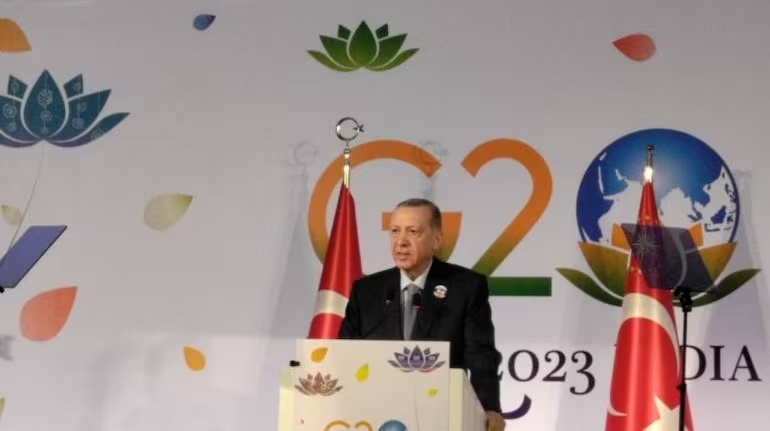
Turkey proposes alternative to India-Middle East Trade corridor
NEW DELHI : Turkey has been engaged in “intensive negotiations” to find a substitute for the India-Middle East trade corridor proposal, which was adopted at the G20 meeting this month. Turkey wants to maintain its long-standing position as a major transit hub for commodities travelling from Asia to Europe.
The projected India-Middle East line, which would transport goods from the subcontinent to European markets via the United Arab Emirates, Saudi Arabia, Jordan, and Israel, has received no backing from Turkey.
Following the G20 Summit, Turkish President Recep Tayyip Erdogan declared that “there can be no corridor without Turkey” and that “the most appropriate route for trade from east to west must pass through Turkey.”
Foreign Minister Hakan Fidan of the nation has now reiterated his pessimism, saying last week that “experts had doubts that the primary goal [of the India-Middle East corridor] was rationality and efficiency” and that “more geostrategic concerns” were at stake.
Turkey is keen to underline its long history of serving as a link between the east and west and the silk pathways.
According to the maps provided by the administration of Baghdad, products will be transported along the proposed $17 billion route from the Grand Faw port in southern Iraq to Turkey after passing through 10 Iraqi provinces.
Emre Peker, Europe Director at the Eurasia Group think tank, told, “Turkey lacks the financing to realise the full scope of the project, and seems to be counting on UAE and Qatari support to build the proposed infrastructure.”
Peker said that in order for that to happen, the Gulf governments would need to be persuaded that their investments would be profitable—something that is not immediately obvious with the [Development Road] project.

